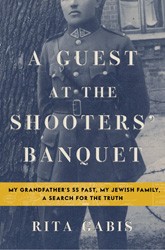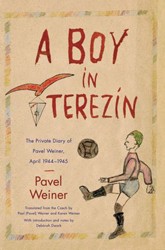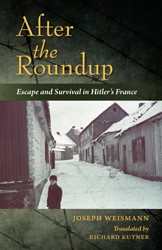Nini Karpel believed she was lucky to be born in Vienna. She thrived on the city: lively discussions in cafes, accompanied by coffee and wondrous pastries, skiing in the winter and strolling through gardens in the summer, glorious music, and a large and loving family of aunties and uncles.
An idealist and activist, Nini believed that her cultured Austria was above the strident nationalism of Germany. But by the late 1930s, anti-Semitism began to invade Vienna, first slowly and then unmistakably, as Jews were brutalized daily. Frantic, Nini stumbles into the office of a lawyer who arranges passage to Shanghai for her entire family.
Shanghai, 1939 — crowded, reeking with sewage and strange cooking smells, a world away from Vienna. Modest success is soon wiped out in the squalor and menace of the Shanghai ghetto, established by the Japanese conquerors in 1944. Victory in the war brings unimaginable accounts of the Holocaust. Knowing there is no return to Vienna, Nini’s family decides to make its life in Shanghai. Then the Communist Chinese take over. Forced to flee again, the entire family — a full generation of brothers and sisters and their children — manages to emigrate to Canada.
This is Nini’s compelling story, as told to her daughter, Vivian Jeanette Kaplan. Kaplan writes in the present tense in her mother’s voice, making the narrative immediate although sometimes a little contrived. But this story of both horror and triumph bears full-voiced witness to the cruelty of the Holocaust — here on the less familiar Eastern front as well as in Europe — and to a family of remarkable endurance.
Maron L. Waxman, retired editorial director, special projects, at the American Museum of Natural History, was also an editorial director at HarperCollins and Book-of-the-Month Club.





